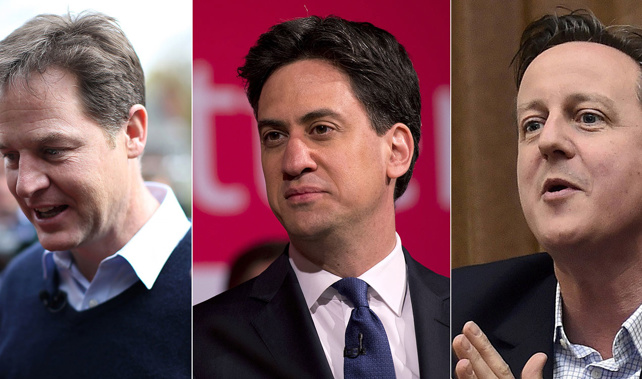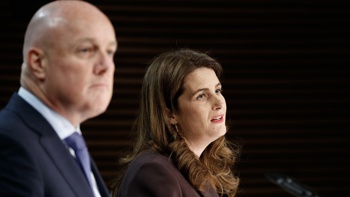
UPDATED 8.48AM: Britain is heading for the polls in the closest general election for a generation - but voters may have to wait days for a new government as politicians battle to take power.
Thursday's election looks set to deliver a minority government for the first time since 1974 but could also push Britain closer to leaving the European Union and hasten Scottish independence.
Prime Minister David Cameron's centre-right Conservatives, leaders of a coalition government since 2010, are fighting to stay in office but are at level pegging with Ed Miliband's centre-left Labour in opinion polls.
While the leaders of both main parties insist in public they can win a clear majority in the 650-seat House of Commons, they will almost certainly have to work with smaller parties to form a government.
Who will team up with whom is the biggest question of the election.
Exit polls will be released at close of polling at 2100 GMT on Thursday (0700 AEST, Friday) and most results will emerge overnight, although the final tally of seats will not become clear until Friday afternoon.
If, as expected, neither the Conservatives nor Labour win a clear majority, they will start days and possibly weeks of negotiations with smaller parties to try and build a bloc of around 326 seats.
The Scottish National Party (SNP), which wants Scotland to split from Britain, looks set to win most seats north of the border and a strong position in the talks.
The SNP would support a minority Labour government but not a Conservative one. The party of Margaret Thatcher is deeply unpopular north of the border, where her economic reforms are still blamed for the decline of heavy industry.
Some analysts say the SNP could use its influence over a new government to push for a fresh independence referendum after Scots rejected a split from the union in a referendum last September.
The centrist Liberal Democrats, junior partners in Cameron's coalition government, will also have a key role to play in post-election negotiations and are open to working with either of the two main parties.
While their leader Nick Clegg is seen as closer to the Conservatives, he could struggle to hold his own seat amid expected Liberal Democrat losses across the country.
Nigel Farage's anti-EU UK Independence Party (UKIP) is only expected to win a handful of seats and therefore play a limited role in post-election negotiations.
The election is being watched closely around the world due to the consequences it could have for the standing of Britain, a permanent member of the UN Security Council and nuclear-armed NATO state.
Experts say the US, with whom Britain likes to boast of a "special relationship", is already wary that defence cuts are affecting its ability to contribute to military operations as it did in Iraq and Afghanistan.
Another potential issue for Britain's global status is that Cameron has promised a referendum on whether Britain, the world's fifth biggest economy, should leave the EU by 2017 if the Conservatives win.
While polling suggests Britons would currently reject a Brexit, a lengthy referendum campaign reopening the scars of the country's uneasy relationship with Europe could change that.
Take your Radio, Podcasts and Music with you









